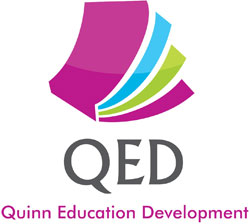If there is anything that I have learnt in 25 years of school leadership, it is that the importance of emotional intelligence cannot be underestimated.
Having started my career in a primary school over 30 years ago I quickly began to feel that I had made a terrible choice and that teaching really wasn’t for me. The school I worked in was run by a Headteacher who had worked her way up from NQT to headship in the same setting. The school was her baby and there was no room for competing views or ideas. The views of staff seemed to not be relevant and no account was taken of how decisions impacted on me or other staff members. As a naive NQT, I believed that this was how all schools must be so decided that I should leave the profession.
Seeking a change of career path, I trained as a psychotherapist. My training was invaluable and really enabled me to reflect both on my own behaviours and feelings and on those of others. It gave me the space and time to realise that unless you invest in people and ensure that they are understanding what you are saying, then you are destined to have fruitless and unproductive relationships. It made me reflect on what I felt was important in human interactions and what values and principles I held dear. Unknowingly, this training would have a profound effect on my future career choices.
Towards the end of my training, money was running low and I accepted a part-time position in a new school in order to fund my studies. I fairly quickly realised how mistaken I had been to judge all schools on the experience I had in my first school. My second school was run by a headteacher who was not someone to mess with but who listened and took on board other people’s views. She explained her decision-making carefully so that everybody understood why and how things needed to be done in a certain way and whilst I didn’t always agree with everything that she did, I always felt valued and heard as a member of staff. Over the next couple of years, I became full-time and ended up running the junior department. I learnt so much from her leadership and her example not only about the day-to-day running of the school but also about how to lead people and how to ensure that everybody’s voice is valued.
As my career developed and I moved into more senior leadership roles and onto headship and executive headship, I have constantly reflected on those two experiences of leadership and how they influenced the leader that I have become. I have also realised how difficult the task of leadership is; managing the day-to-day demands of running and improving a school and trying to meet the, often competing needs and demands of different stakeholders. My guiding principal through all of this has been around humanity and the need to make sure that even when people have disagreed with the decisions I have made, that they understand the reason that I’ve made them.
In recent years I’ve been fortunate enough to mentor new headteachers and support schools and head teachers that are working in really challenging circumstances. Working in diverse settings has forced me to constantly re-evaluate the most effective ways of working and to consider how things can be improved for all children in each different context. The single overriding factor which I believe exists regardless of context, school size, level of deprivation or level of experience of school leaders, is the emotional intelligence and humanity that the leaders bring to the task.
The concept of windows and mirrors in leadership has been extremely helpful to me as I have sought to work with a variety of leaders in different settings.
‘Great leaders look out the window to apportion credit to factors outside themselves when things go well (and if they cannot find a specific person or event to give credit to, they credit good luck). At the same time, they look in the mirror to apportion responsibility, never blaming bad luck when things go poorly.’
Jim Collins – Good To Great

The concept of mirrors encourages leaders to reflect on their own actions and feelings in order to develop greater empathy and understanding of how others think, feel and act. Windows represent the outside world, the views and opinions of others and external evaluations of performance and success. Those who focus solely on windows often end up feeling out of control, as if the world is dictating to them what they need to do and that they have no agency in their own decision making.
Those who instinctively, or through hard work and self-discipline, focus on mirrors, tend to bring a greater clarity to what they see out of the window. They are able to filter external views through their own principles and insights and use these external factors wisely to further develop their school and their own leadership practice.
I’ve worked with leaders who instinctively use the mirrors philosophy to guide their decision making. They listen, reflect, empathise, are willing to say when they are wrong, are willing to admit when they feel out of the depth (a feeling I have often had), and seek guidance and support from others. These leaders bring an integrity, honesty and vulnerability to their interactions with all staff members. Invariably these leaders earn the trust, respect and admiration of their staff and build teams that together, have overcome the most challenging situations.
I have also worked with leaders who lack self-awareness and are quick to criticise and blame others when things go wrong. They use the windows philosophy, not to look out at what is around them, but to feel persecuted and judged and in turn to find others to blame. For some of these leaders, their ego will not allow them to admit when they’re wrong, to acknowledge that other staff may have talents and skills beyond their own, or to ask for help when they’re struggling.
The saddest part of this is that, all too frequently, these leaders are the architects of their own demise. They become increasingly isolated from their staff and from other colleagues within the sector, choosing to believe that they know better or too scared to admit to themselves that they may be wrong. A leader like this is incredibly difficult to work with as they do not have the fundamental tools that are needed for leading such immensely complicated and complex institutions such as schools. When working with these leaders it is imperative that they start to engage more in self-evaluation and self-reflection: how are they feeling, what is playing on their minds, who can they ask for help and support, where does expertise exist beyond their own? When leaders have the capacity to start to think in this way, they are more likely to start to feel a greater level of job satisfaction and self-worth and, invariably, will lead a happier and more successful organisation.

So, wherever you are on your leadership journey whether you’re just starting out whether you’ve just taken on a new frightening new position or whether you are a seasoned leader of experience, I would urge you to keep learning, keep reflecting, keep developing the skills of self-awareness and awareness of those around you and to engage all of your senses and instincts to identify how others are feeling, how things are going and what you need to do next.
I have also developed an audit tool which you can find here. Please do get in touch if you would like more information.
